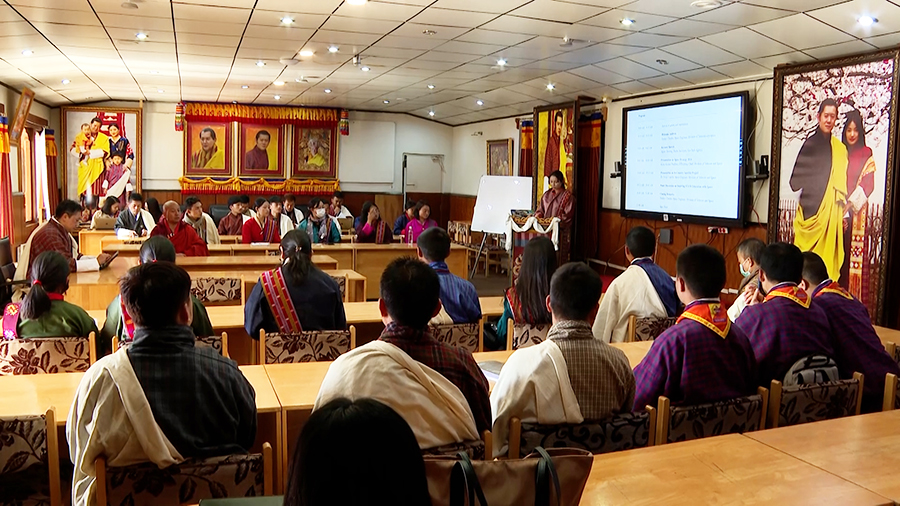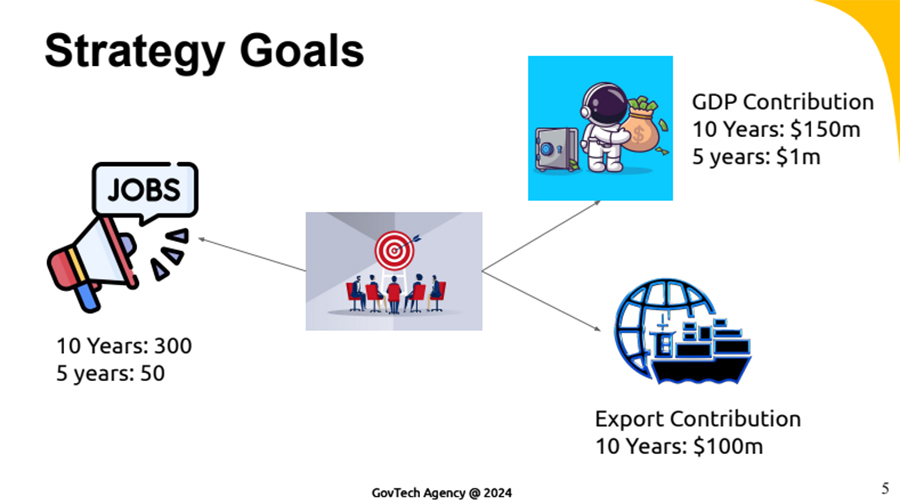
This year marks the sixth anniversary since Bhutan launched its historic first satellite in space in 2018. To harness the potential of space technology to drive the country’s economic growth, the GovTech Agency introduced its space roadmap, Space Strategy 2034. It intends to create job opportunities and contribute significantly to Gross Domestic Product. The GovTech Agency unveiled the roadmap today at its Space Forum to celebrate the milestones achieved thus far in space technology.
 The roadmap, Space Strategy 2034 will focus on bringing the benefits of space science and technology to the nation.
The roadmap, Space Strategy 2034 will focus on bringing the benefits of space science and technology to the nation.
The roadmap lays out plans and activities that the Division of Telecom and Space under the GovTech Agency will carry out to contribute about USD 150 million to the GDP in the next ten years.
Kiran Kumar Pradhan, an Executive Engineer with GovTech Agency said, “Our first focus will be on remote sensing technology. There is a huge demand for satellite images and their applications in Bhutan. Similarly, there is a huge demand for satellite images and their application in the rest of the world. So, Bhutan will look at leveraging this fact, and try to come up with products and services that will not only serve the needs of our country but could also be beneficial for the rest of the world.”
Moreover, he added that private companies and individuals will also be engaged to come up with remote-sensing applications. Remote sensing is a technology that uses sensors to gather data about the earth’s surface to be used in agriculture, climate monitoring, disaster management, urban planning, and geology among others.
“So, there will be a need for a lot of individuals capable of processing images and then analysing them and coming up with appropriate applications out of it. So, this will create some job opportunities in the market to focus on image processing,” he added.
The division hopes to generate around 300 jobs through various activities.
Kiran Kumar Pradhan said, “We have other focus areas like the space IOT. Space IOT is one area where it is not just about the soft components but you will also need to focus on the hardware development. So, focusing on remote space IOT would also allow us for our citizens and youth to get hands-on with hardware development. So, there will be another set of job opportunities coming up in the hardware development, design and development applications.”
He added that with advancements in space programmes, there will be a need for people from diverse backgrounds such as lawyers, business strategists, marketing officers and social workers.
The division plans to make these jobs available even for those who have not studied science and technology.
It is currently building Bhutan’s third satellite expected to be launched by 2026.
Devika Pradhan
Edited by Phub Gyem







